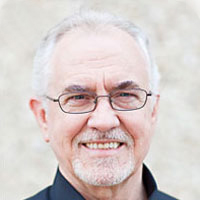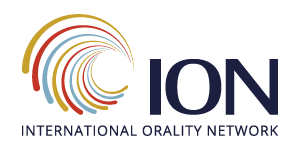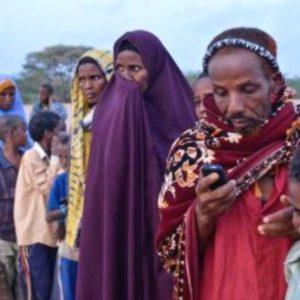
Pat Zondervan
HOUSTON, TX (ANS – December 5, 2017) — In the Fall of 1975, in Memphis, Tennessee, I heard a message delivered by the late Pat Zondervan. I recently spoke on the content of Mr. Zondervan’s very memorable speech, which was based on the uniqueness and attributes of the Palm Tree, from Psalm 92:12, which says, “The righteous will flourish like a palm tree.”
I am amazed at how much I can remember of his speech that he made after more than 40 years. It points out the power of image, of communicating using mental pictures or images.

Stained glass windows in the cathedrals of the Middle Ages were not just for decoration, but were for communication and instruction
Having been involved in the Orality Movement over the years, I am increasingly aware of the ways we learn, communicate, process information and remember things. In our Orality Training we emphasize that when we use orality-based communication methods, we use a different part of our brains than when we read texts or use print-based instructional material. Actually, research shows that storytelling and orality-based methods activate our brains and help improve memory overall.
One of the observations we made several years ago in an Orality Training in a remote area of a West African country was the difference in the ways people responded and retained information. In a Storying Workshop with more than 100 people, about half of the participants had their Bibles, note pads and pens, while the other half had none, as they were non-literate/oral learners.
At the end of the day of training, we observed that the Oral learners were able to learn and retell the stories better than the literate participants. The Oral learners were more accustomed to hearing, discussing and processing information in community, whereas the literate ones depended more on written materials or text-based methods. It’s important to note that even among highly educated and literate populations, orality-based methods can enhance the learning experience and the ability to retain information.

The power of learning in community
Some churches and ministries in North America and the Western World are beginning to discover that there are many lessons we can learn from the more relational, communal, Oral cultures in the Global South. In our training workshops we see barriers come down and trusting relationships built. Some still think of Orality and Storytelling training as being good for non-literate or less educated people. However, the benefits of the concepts and principles of Orality are important in areas where individualism and isolationism are prevalent, such as the USA.
When considering communicating the Gospel and Making Disciples, the Arts Community has much to offer. Not only the visual and performing arts for effective communication, but also areas such as relational, participatory and dialogical arts to develop and maintain community. These are valuable skill for everyday life and ministry.
Think of the difference in reading a book, as opposed to seeing a movie and discussing it with your friends. Consider how the Lord has used the Jesus Film over the years. Then as viewers discuss it in community, it sticks. The late Dr. Avery Willis along with co-author Mark Snowden, do a great job making the case for the power of orality in their book Truth That Sticks.

Retelling and discussing stories reinforces the message
There are many images throughout Scripture that communicate spiritual truths and lessons. The Lord Jesus used many images, like the vine and the branches, the wise man who built his house on a rock, the parable of the sower, and many others. Actually, Jesus is our best model as a communicator, trainer, disciple maker and leader. Most people in His day were Oral Learners, as it is today. Even though more people are literate now, the majority of the world would be considered Oral learners, by necessity or by preference.
One of the big questions today would be: “How are we going to be able to communicate the Gospel to everyone, and make disciples among all people groups?” Another strategic question is, “Can we communicate, train and make disciples the way Jesus did?”

The answer to these questions of course, is “Yes,” because the same Holy Spirit is at work in the world today, and each of us, who are born of the Spirit, have Christ in us.
Jerry Wiles is President Emeritus of Living Water International and serves on the advisory council and leadership team of the International Orality Network. He can be reached at: [email protected].






